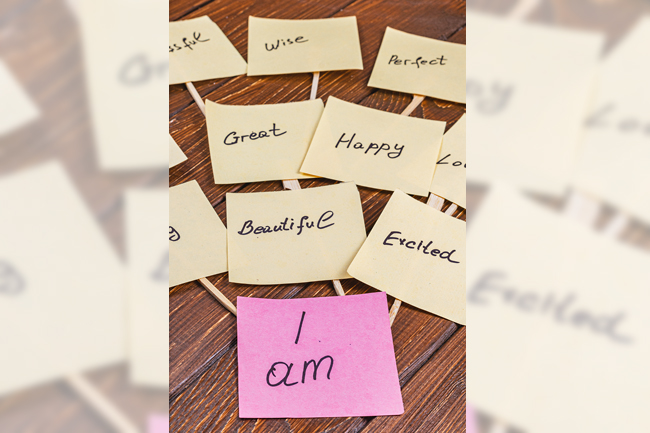I have spent years trying to love myself, only to find that self-acceptance is not a single moment of revelation but an ongoing battle. Some days, I feel like I am enough.
Other days, the weight of past experiences, the echo of old criticisms, and the fear of rejection make me shrink into myself.
I know I am not alone in this. So many of us yearn for love while questioning our worthiness of it.
The path to embracing oneself and allowing love in is not a straight road but a labyrinth, filled with winding passages of self-doubt, societal conditioning, and the ghosts of past wounds.
Why is it so difficult to accept ourselves? Why do we flinch when love reaches out to us? I have asked myself these questions countless times.


THE BURDEN OF EXPECTATIONS
From the moment we take our first breath, expectations shape us. Society, culture, family – each has a mould, a blueprint for who we should be.
I was told how to act, what to achieve, and who to become. But what happens when our true selves do not align with these prescribed ideals? A fracture appears.
A quiet, insidious voice whispers that we are not enough, not worthy, not lovable unless we conform. In this battle between authenticity and expectation, many of us lose sight of our intrinsic value.
The yearning to be seen wars with the terror of being misunderstood. And so, we shrink ourselves, burying our radiance beneath the weight of “shoulds” and “musts.”
Our history follows us like shadows, whispering doubts when we stand at the edge of love. The way we were loved – or not love – sets the stage for how we perceive ourselves.
If love in our formative years came with conditions, we internalise the idea that we must earn affection.
I have struggled with this idea myself, constantly questioning if I am too much or not enough for someone to truly stay. If past relationships have left scars, we become wary of love’s embrace, fearing pain more than loneliness.
Our past becomes a script we unconsciously follow, even when it no longer serves us.
Breaking free requires the courage to rewrite our narrative, to believe that love can exist without prerequisites, and that our worth is not measured by external validation.
But this takes time, and often, the ghosts of rejection and abandonment are relentless, whispering that love is a fleeting illusion.
THE FEAR OF VULNERABILITY
To accept love, one must be seen. Not just the polished version we present to the world, but the unfiltered self – messy, flawed, raw. This is terrifying. Vulnerability is often mistaken for weakness, but in truth, it is the gateway to deep connection.
Yet, I have built walls around myself, convincing myself that if no one gets too close, no one can leave. Love knocks, but I hesitate to open the door.
The irony is that love, in its purest form, thrives in authenticity.
To embrace it fully, we must dismantle the fortress of self-protection we’ve constructed. We must believe that our unvarnished selves are enough, even when past wounds scream otherwise.
For many, the loudest voice in the room is their own – an inner critic that scrutinises every flaw, magnifies every mistake, and dismisses every success. I know this voice well. It tells me that I must do more, be more, prove more.
If I cannot extend kindness to myself, how can I believe that others will? Accepting love requires self-compassion, a skill I am still learning. It demands that we challenge our inner critic and replace judgement with understanding, hostility with gentleness.
Yet, silencing this voice is not easy. It is a lifetime’s work, an act of rebellion against the conditioning that has told us we are never quite enough.
We live in a world that glorifies perfection. Social media showcases curated lives, where flaws are filtered out and struggles are hidden.
The pressure to measure up is immense, leaving many feeling perpetually lacking. This obsession with perfection seeps into our relationships, making us believe that we must be “complete” before we are worthy of love.
But perfection is a mirage, always just out of reach. I have learned that love is not about finding someone flawless, nor is it about being flawless. It is about two imperfect souls choosing each other, embracing both light and shadow. Real love is found in the quiet, unpolished moments – in the shared silences, in the gentle acceptance of one another’s scars, in the understanding that we are all, in our own way, beautifully broken.
THE JOURNEY TO ACCEPTANCE
Self-acceptance is not a destination but an ongoing journey.
It requires unlearning years of conditioning, challenging deep-seated beliefs, and making peace with the past.
It is about standing in front of the mirror and seeing beyond the perceived flaws, recognising the person staring back as deserving of love – not because of achievements, not because of external validation, but simply because they exist.
Similarly, accepting love is an act of courage. It means allowing someone to see us fully, trusting that we do not have to perform or prove our worth. It means surrendering to the possibility of heartbreak, knowing that the richness of love is worth the risk.
Love is not for the perfect; it is for the real. And to be real, we must first allow ourselves to be seen.
Perhaps the most profound love story we will ever experience is the one we have with ourselves. When I learn to embrace who I am, with all my imperfections, I find that I am more open to love from others.
When I stop searching for validation outside of myself, I realise that love was never something to be earned – it was something to be received, something to be shared.
The labyrinth of self-acceptance may be complex, but at its core lies a simple truth: I am enough. You are enough. We have always been enough.
And love, in its truest form, is not about perfection – it is about presence, about choosing to stay, to soften, to believe that we are worthy, just as we are. – Izah Azahari






